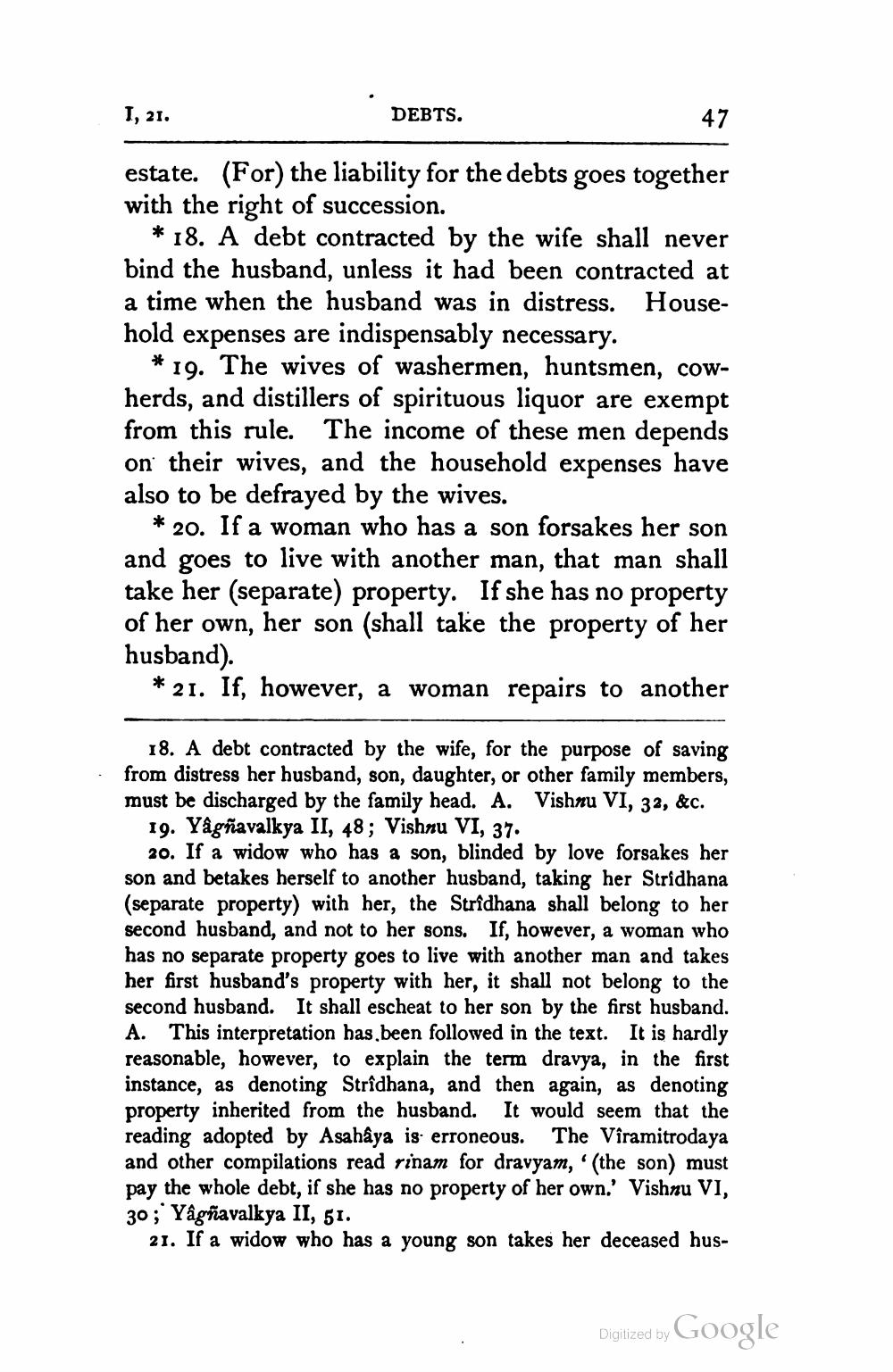________________
I, 21.
DEBTS.
47
estate. (For) the liability for the debts goes together with the right of succession.
* 18. A debt contracted by the wife shall never bind the husband, unless it had been contracted at a time when the husband was in distress. Household expenses are indispensably necessary.
*19. The wives of washermen, huntsmen, cowherds, and distillers of spirituous liquor are exempt from this rule. The income of these men depends on their wives, and the household expenses have also to be defrayed by the wives.
* 20. If a woman who has a son forsakes her son and goes to live with another man, that man shall take her (separate) property. If she has no property of her own, her son (shall take the property of her husband).
* 21. If, however, a woman repairs to another
18. A debt contracted by the wife, for the purpose of saving from distress her husband, son, daughter, or other family members, must be discharged by the family head. A. Vishnu VI, 32, &c.
19. Yågñavalkya II, 48; Vishnu VI, 37.
20. If a widow who has a son, blinded by love forsakes her son and betakes herself to another husband, taking her Stridhana (separate property) with her, the Stridhana shall belong to her second husband, and not to her sons. If, however, a woman who has no separate property goes to live with another man and takes her first husband's property with her, it shall not belong to the second husband. It shall escheat to her son by the first husband. A. This interpretation has been followed in the text. It is hardly reasonable, however, to explain the term dravya, in the first instance, as denoting Strîdhana, and then again, as denoting property inherited from the husband. It would seem that the reading adopted by Asahâya is erroneous. The Vîramitrodaya and other compilations read rinam for dravyam, '(the son) must pay the whole debt, if she has no property of her own.' Vishnu VI, 30; Yâgñavalkya II, 51.
21. If a widow who has a young son takes her deceased hus
Digitized by Google




